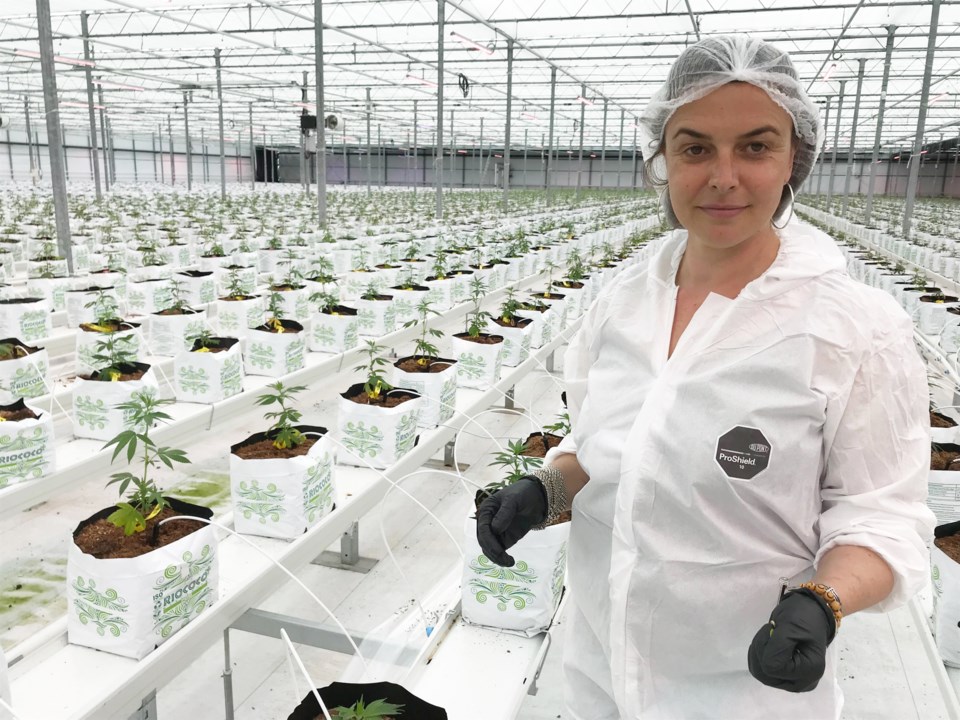Canopy Growth today confirmed it plans to close its B.C. facilities in Delta and Aldergrove, resulting in the elimination of approximately 500 positions.
In addition, the company no longer plans to bring a third greenhouse online in Niagara-on-the-Lake, Ontario, the company stated in a news release, noting the moves are part of the company's effort to align supply and demand while improving production efficiencies over time.
The Delta and Aldergrove facilities were called BC Tweed.
The news release notes that the greenhouses in B.C. account for approximately three million square feet of licensed production space and were put into commission, beginning in February 2018, after a period of phased retrofitting to help Canopy Growth scale up to supply the new Canadian adult-use market.
“Nearly 17 months after the creation of the legal adult-use market, the Canadian recreational market has developed slower than anticipated, creating working capital and profitability challenges across the industry. Additionally, federal regulations permitting outdoor cultivation were introduced after the Company made significant investments in greenhouse production,” the company explained.
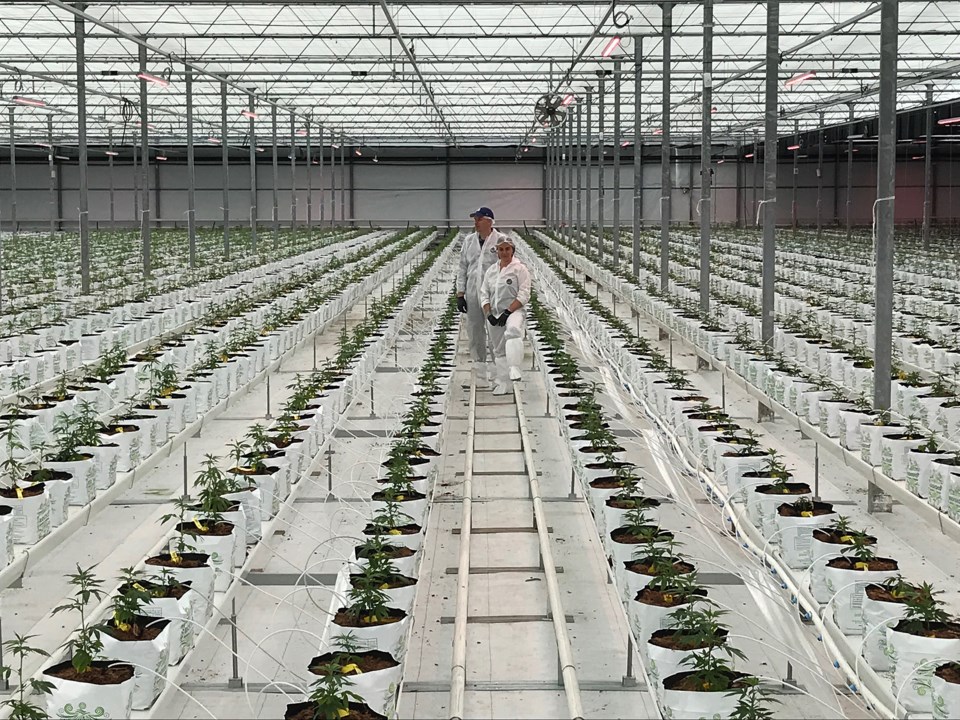
Canopy Growth spent major dollars retrofitting the East Delta greenhouse
“The Company now operates an outdoor production site to allow for more cost-effective cultivation, which will play an important role in meeting demand on certain products that rely on cannabis extracts. Following an organizational strategic review of production capacity and forecasted demand, the Company announced today that these facilities in Aldergrove and Delta, British Columbia are no longer essential to its cultivation footprint.”
Canopy Growth CEO David Klein explained, "When I joined Canopy Growth earlier this year, I committed to focusing the business and aligning its resources to meet the needs of our consumers. Today's decision moves us in this direction, and although the decision to close these facilities was not taken lightly, we know this is a necessary step to ensure that we maintain our leadership position for the long-term. Along with the rest of the management team, I want to sincerely thank the members of the team affected by this decision for their work and commitment to building Canopy Growth."
BC Tweed’s Horny Drive greenhouse in East Ladner is 1.7-million-square-feet.
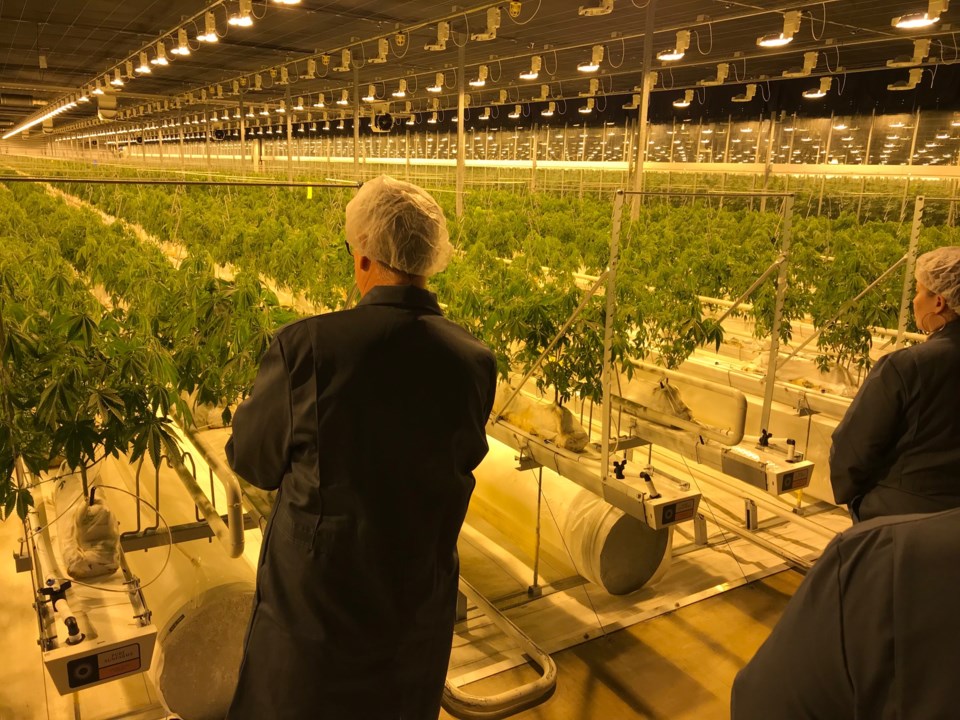
Pure Sunfarms has an even bigger facility in Delta
Providing cannabis for both the medical and non-medical markets, a variety of strains was to be grown and processed on site before being sent for packaging prior to delivery to a B.C. government distribution centre.
From there, cannabis was to be sent to government-run retail outlets as well as private stores, which could have included those run by Canopy.
In a 2018 interview, Hilary Black, Canopy’s then director of patient education and advocacy, explained the goal was to ensure there was a sufficient quantity of product for the recreational sector and growing medical market.
The B.C. Tweed greenhouse in Delta was expected to have about nine varieties grown.
Meanwhile, while Canopy, the world’s largest cannabis company, is leaving Delta, other big greenhouse operations in the community are ramping things up.
In addition to the B.C. market, Pure Sunfarms in East Ladner secured a supply agreement with Alberta Gaming, Liquor and Cannabis to become an official supplier of recreational adult-use cannabis products to that province’s licensed private sector retailers, including Alberta’s only legal online source for recreational cannabis.
Before the legalization of cannabis two years ago, Village Farms International partnered Emerald Health Therapeutics, Inc. to form a new venture called Pure Sunfarms.
The plan is to eventually have all 2.2 million square feet of production space at the Delta facility converted to cannabis.
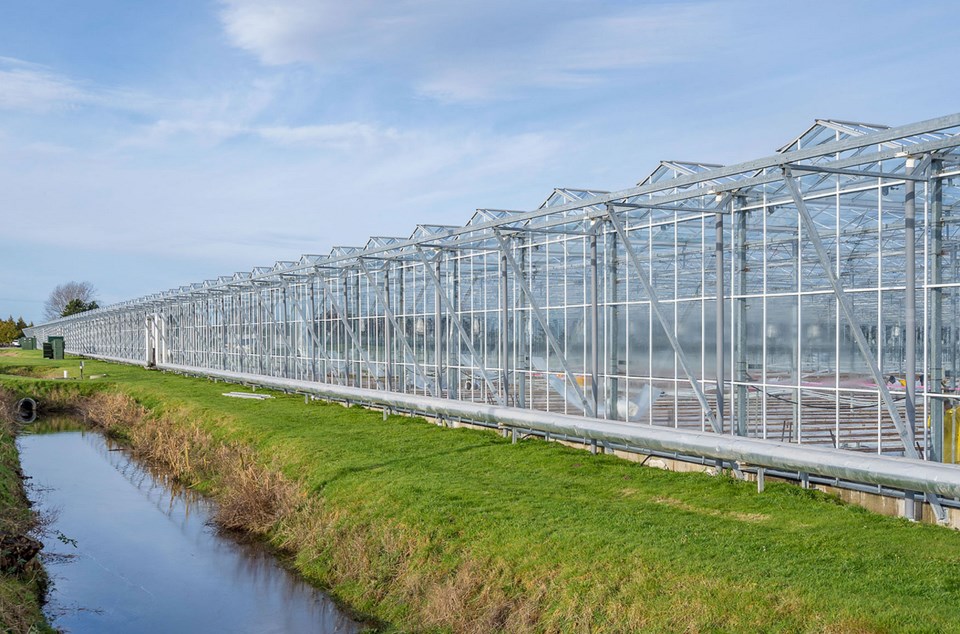
AgraFlora is converting its huge greenhouse in phases
Elsewhere, AgraFlora Organics International Inc. has a partnership with the huge Houweling Nurseries complex on 64th Street, a 2.2-million-square-foot facility called the Delta Greenhouse Complex.
AgraFlora, which also has a 51,500-square-foot edibles manufacturing facility in Winnipeg, also runs a specialized entity called Propagation Services Canada Inc. in Delta.
It recently announced it has entered into an agreement to acquire a curated portfolio of elite live-plant cannabis genetics that will accelerate the company’s plans to disrupt the Canadian cannabis market.
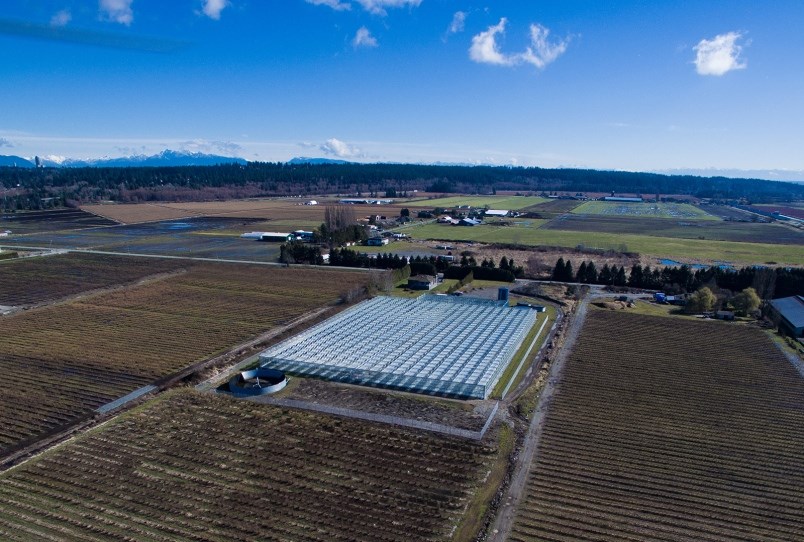
Rubicon Organics is focusing on the higher end of the craft cannabis market
Rubicon Organics Inc., which operates a 125,000-square-foot greenhouse on 104th Street, recently announced that, together with its partner Agro-Greens Natural Products Ltd., received the first orders for the company’s Simply Bare organic brand from both the B.C. Liquor Distribution Branch and National Cannabis Distribution in Saskatchewan.
The company noted it expects its organic product to be available in both provinces soon and will expand into additional provinces in the near future.
Jesse McConnell, CEO of Rubicon Organics, told the Optimist in a previous interview they don’t consider themselves a boutique Delta operation, but rather a bigger craft cannabis grower focusing on the higher end of the market.
Unable to prevent them from setting up shop in the Agricultural Land Resrve, the City of Delta has been working with the cannabis producers to make sure they have business licenses.
